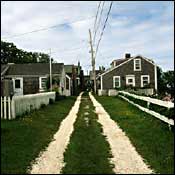
“I do not go to New York. I leave Paris,” Marcel Duchamp is said to have said about his 1915 decampment from the Europe which he, at the moment anyway, couldn’t tolerate. He thought he’d like it better in America, where no one, he believed, gave a damn about Shakespeare, and where it was a perfect terrain for new developments. For him, it worked. But it’s just one way to think about travel—a matter of leavings, less of arrivings. Very French. Very noir. But not very American, where we’re always headed somewhere. And not at all the way I think about travel. For me, leavings are always only smally regrettable—the tiny yet overlookable loss accompanying the urge to go. Arrivings barely figure in either. Moline is about as good as Mobile to me. Emerson, who claimed travel was a fool’s paradise, also wrote that we’re all “parlor soldiers.” And that “power ceases in the instant of repose; it resides in the moment of transition from a past to a new state, in the shooting of the gulf, in the darting to an aim.” Emerson was the first to admit he never cared much for consistency. But I buy the part about power being in some version of kinetic energies; the urge to make a move, to travel—a happy day’s drive to the beach at Manasquan, an inertia overcome simply to faire une promenade. This urge to go has potency in it, no matter what route we take or don’t. Seen this way, travel’s efficacy is about neither leaving nor arriving, but about the urge itself, the longing for next. It’s power we waste when we don’t notice it, even if we only, well … notice it. Entire novels—travels of another sort—can be written to this urge. Awareness. Sharpening the point of possibility. Travel satisfies this, but needn’t. Manasquan is just one option.
Spring Alert! Our Guide to Weekend Escapes >>>